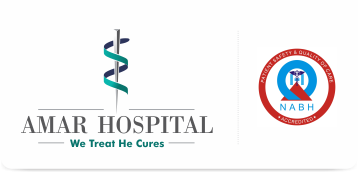Millions of individuals worldwide suffer with hypertension, commonly known as high blood pressure, which is a common yet dangerous medical condition. It can cause serious side effects like renal damage, heart disease, and stroke if left untreated. However, with the right lifestyle changes and medical interventions, high blood pressure can be effectively controlled.
Also Read: The Role of Physiotherapy in Post-Surgical Recovery: Physiotherapy in Patiala
Here are the top 10 tips to help you control high blood pressure in 2024:
1. Maintain a Healthy Weight
Excess weight can strain your heart and lead to high blood pressure. By maintaining a healthy weight through a balanced diet and regular exercise, you can reduce your risk of hypertension and control High Blood Pressure.
2. Follow a Balanced Diet
Focus on consuming a variety of fruits, vegetables, whole grains, and lean proteins while limiting saturated fats, cholesterol, and sodium. Incorporate heart-healthy foods such as leafy greens, berries, nuts, and fish rich in omega-3 fatty acids. Be mindful of portion sizes and avoid processed foods high in salt and sugar.
3. Limit Sodium Intake
Excessive sodium consumption can contribute to high blood pressure by causing the body to retain fluid and increase blood volume. Aim to limit your daily sodium intake to less than 2,300 milligrams, or ideally, less than 1,500 milligrams for individuals with hypertension or at risk of developing it. Be vigilant of hidden sources of sodium in packaged and processed foods, and opt for fresh, whole foods whenever possible.
4. Exercise Regularly
Regular physical activity is essential for maintaining cardiovascular health and controlling high blood pressure. Choose activities you enjoy, such as walking, cycling, swimming, or dancing, and make exercise a regular part of your routine.
5. Manage Stress
Chronic stress can contribute to high blood pressure by triggering hormonal changes and increasing blood vessel constriction. Prioritize self-care activities and seek support from friends, family, or mental health professionals to cope with stress effectively.
6. Limit Alcohol Consumption
Excessive alcohol consumption can raise blood pressure and increase the risk of hypertension-related complications. Consider alternative beverages such as water, herbal tea, or sparkling water flavored with citrus or berries.
7. Quit Smoking
If you smoke, take steps to quit smoking as soon as possible. Seek support from healthcare professionals, counseling services, or smoking cessation programs to develop a personalized quitting plan and improve your overall health.
8. Monitor Your Blood Pressure Regularly
Regular blood pressure monitoring is essential for tracking changes and evaluating the effectiveness of your control measures. Invest in a home blood pressure monitor and measure your blood pressure regularly, following your healthcare provider’s recommendations. Keep a record of your readings and share them with your doctor to adjust your treatment plan as needed.
9.Get an Adequate Amount of Sleep
Poor sleep quality and inadequate sleep duration can contribute to high blood pressure and other cardiovascular problems. Aim for seven to nine hours of quality sleep per night to promote optimal health and blood pressure control.
10.Follow Your Doctor’s Recommendations
Take medications as prescribed, attend regular check-ups, and communicate any concerns or changes in your condition with your healthcare provider promptly. By working collaboratively with your doctor, you can effectively control high blood pressure and reduce the risk of complications.
11.Stay Hydrated
Drinking an adequate amount of water helps prevent dehydration, which can cause blood vessels to constrict and elevate blood pressure. Aim to drink at least eight glasses of water per day, or more if you’re physically active or live in a hot climate. Hydrating beverages such as herbal tea, infused water, and coconut water can also contribute to your daily fluid intake.
12.Incorporate Potassium-Rich Foods
Potassium is a mineral that helps regulate blood pressure by balancing sodium levels in the body. Incorporating potassium-rich foods such as bananas, oranges, spinach, sweet potatoes, and avocado into your diet can help lower blood pressure naturally. Aim to consume at least 3,500–4,700 milligrams of potassium per day, as recommended by dietary guidelines.
While moderate alcohol consumption may have some cardiovascular benefits, excessive drinking can raise blood pressure and increase the risk of hypertension-related complications. If you choose to drink alcohol, do so in moderation and be mindful of your intake. Limiting alcohol consumption to one drink per day for women and up to two drinks per day for men can help maintain healthy blood pressure levels.
Controlling high blood pressure requires a comprehensive approach that encompasses lifestyle modifications, dietary changes, stress management, and medical interventions. By incorporating these top 10 tips into your daily routine, you can take proactive steps towards managing your blood pressure and improving your overall health and well-being in 2024 and beyond. Remember to consult with your healthcare provider for personalized guidance and support on your journey to blood pressure control.


